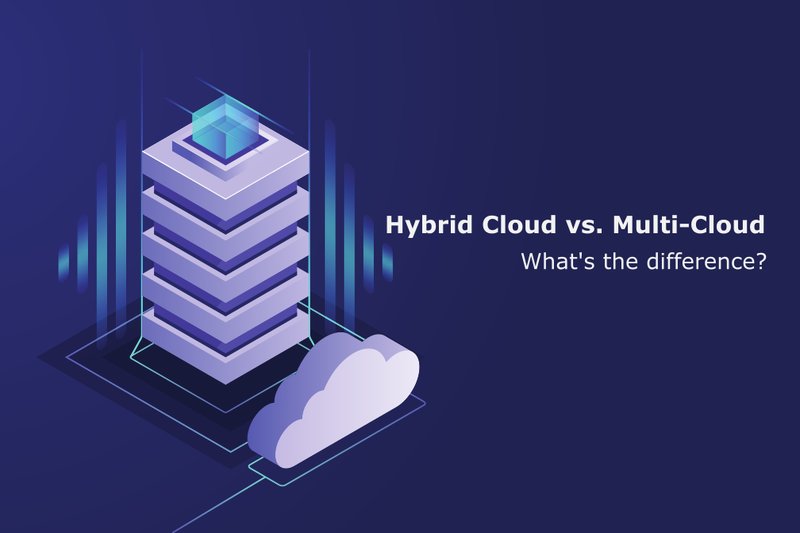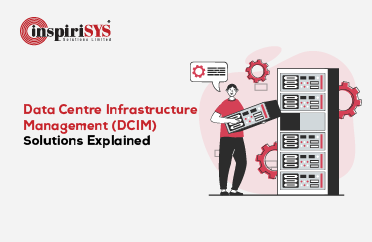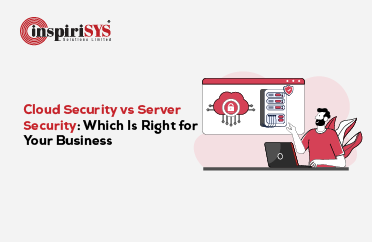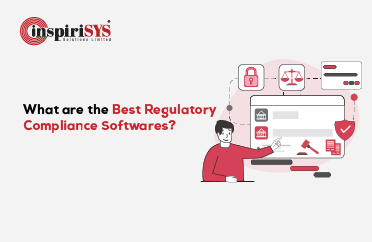The advent of Cloud computing is imposing a great impact on the organizational infrastructure of many businesses. Its scope and popularity is rising high with new cloud innovations. Businesses have started using cloud technology to meet their needs. The top cloud services for 2020 on the limelight are
- Software as a Service (SaaS)
- Platform as a Service (PaaS)
- Infrastructure as a Service (IaaS)
Private and Public Cloud
The adopters of cloud computing mainly rely on the public cloud. Whether it is for business or for an individual, outsourcing application or infrastructure hosting to a third party like Google, Microsoft or Amazon is a convenient one. Though this model is rigid and on the rise, it doesn’t address all the business use cases. For those who take security and governance as prior concerns, the private cloud model is the best one to deploy. But for most of the organizations, the right cloud solution is not either public or private. It’s the combination of both, which means the Hybrid Cloud.
What is Hybrid Cloud
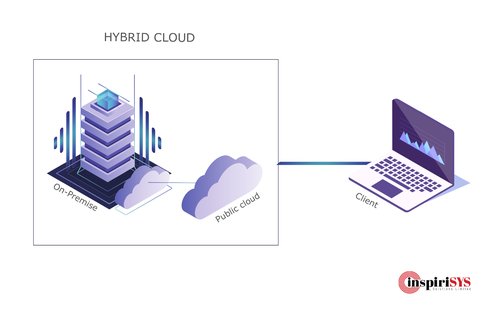 Hybrid Cloud uses a mix of on-premises, private cloud, and third-party public cloud services with orchestration between the two platforms. The prime advantage of a hybrid cloud is its ability to allow workloads to move between private and public clouds as computing needs and costs change. But a new deployment model leverage multiple types of cloud services. It is called as Multi-Cloud.
Hybrid Cloud uses a mix of on-premises, private cloud, and third-party public cloud services with orchestration between the two platforms. The prime advantage of a hybrid cloud is its ability to allow workloads to move between private and public clouds as computing needs and costs change. But a new deployment model leverage multiple types of cloud services. It is called as Multi-Cloud.
What is Multi-Cloud
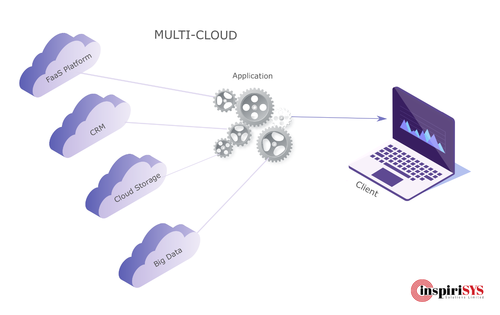 Multi-Cloud uses a mix of public, private and hybrid clouds to achieve the business’ end goals. This public, private and hybrid clouds aren’t necessarily connected to each other. For cloud adopters, the multi-cloud is readily available. It is customizable and flexible in the sense that an enterprise may select the best of each cloud type to suit their particular business needs. These two hot terms “Hybrid Cloud” and “Multi-cloud” are often used interchangeably. But both are completely different.
Multi-Cloud uses a mix of public, private and hybrid clouds to achieve the business’ end goals. This public, private and hybrid clouds aren’t necessarily connected to each other. For cloud adopters, the multi-cloud is readily available. It is customizable and flexible in the sense that an enterprise may select the best of each cloud type to suit their particular business needs. These two hot terms “Hybrid Cloud” and “Multi-cloud” are often used interchangeably. But both are completely different.
Difference between Hybrid Cloud and Multi-Cloud
Though Hybrid Cloud and Multi-Cloud share common attributes, their operating models are completely different. Below are some of the differences between Hybrid Cloud and Multi-Cloud.
| Hybrid Cloud | Multi-Cloud |
|---|---|
| It combines private and public clouds | It involves two or more public clouds and hybrid clouds |
| Every Hybrid Cloud is a Multi-Cloud | Not every Multi-Cloud is a Hybrid Cloud |
| Data is fixed within a private or public cloud | Data is fixed within a public cloud provider |
| Security approaches and tools are different between public and private clouds | Security approaches and tools are different between public clouds |
| Supports native ops tools | Supports third-party ops tools |
| Focus on native cloud usage and cost management | Focus on third-party cloud usage and cost management |
| Native performance analytics | Third-party performance analytics |
Hybrid Cloud vs. Multi-Cloud: Similarities
- Both the Hybrid Cloud and Multi-Cloud uses a mix of clouds based on the organization’s requirements
- As a matter of fact, every Hybrid Cloud can be considered as a Multi-Cloud, as it comprises more than one cloud
- Both have flexibility due to access to multiple clouds
- The overall redundancy of both cloud models can be increased
- Data can be shared between clouds and databases in both Hybrid Cloud and Multi-Cloud
- Organizations can tailor-out their plans based on the budget requirements in either of the models
- The need for multiple management tools is the same
- Both enhance the efficiency of IT teams
Hybrid Cloud vs. Multi-Cloud: Which is better?
For every successful IT department, a strong cloud strategy is a crucial element. So it is inevitable to plan for a cloud strategy that best fits your organizational needs. Hybrid Cloud and Multi-Cloud may share common attributes. But on the flip side, their operations are completely different. Hybrid cloud provides an organization with the flexibility to avoid vendor lock-in. For instance, it can deploy a mission-critical workload with significant security requirements to the private cloud. This enables businesses to retain control over both the infrastructure and software stack. On the other hand, Multi-cloud provides the most comprehensive mix of public and private clouds. It enables organizations and application developers with the ability to pick and choose the discrete components that will comprise their applications and workloads. Every cloud model has its own advantages and disadvantages. The adoption of any cloud strategy completely depends on organizational requirements.
Best Cloud Solution & Service Provider
At Inspirisys, we deliver cost effective cloud solutions and services to our clients covering the entire cloud lifecycle. Our philosophy of exploring better possibilities allows us to help today’s largest global enterprises become inherently digital by leveraging cloud to acquire fresh insights, unlock new opportunities, and build new models for creating better and richer customer experiences. With our promise of digital transformation at speed and scale, we help enterprises to deploy cloud to meet their business objectives and drive growth. Our top cloud solutions are
- Managed Cloud Services
- Cloud Application Services
- Platform as a Service (PaaS)
- Infrastructure as a Service (IaaS)
Click here to talk to our cloud expert.


